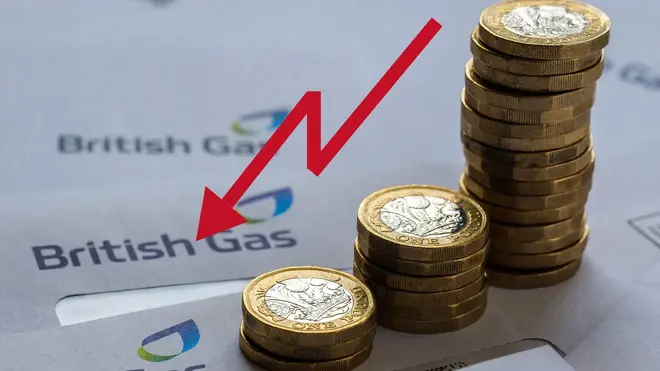
James O'Brien 10am - 1pm
23 September 2022, 12:15 | Updated: 23 September 2022, 12:53

The British pound has plummeted to a fresh 37-year low after Chancellor Kwasi Kwarteng unveiled tens of billions of pounds of tax cuts and spending.
Equity markets were also particularly downbeat, with the FTSE 100 plunging to its lowest in two months.
Sterling declined by as much as 0.89% to 1.115 US dollars as Kwasi Kwarteng spoke to Parliament at 9.30am on Friday.
It later stabilised at around 1.119 dollars, but still remains below the previous 37-year low struck earlier in the week after concerns over surging interest rates hit the currency.
It comes after the Bank of England launched another 0.5 percentage point interest rate hike to 2.25% on Thursday and warned the UK could already be in a recession.
Mr Kwarteng slashed taxes and removed the cap on bankers' bonuses in a bold mini Budget.
The announcement included stamp duty cuts as well as scrapping planned increases of corporation tax, alcohol duty and national insurance.
The cap on bankers' bonuses has also been axed, along with the top rate of income tax, while the bottom rate has been cut by 1p.
Mr Kwarteng also announced a tightening the rules for those claiming Universal Credit, saying they need to take "active" steps to look for work.
He introduced new 'low-tax investment zones' to target more deprived local areas. This aims to liberalise planning rules in specific areas of the UK and target local economic growth.
Read more: Higher rate of income tax axed for top earners and 1p cut for all amid biggest tax cuts since 1972

Economist Frances Coppola struggles to find a positive in mini-budget
Economist Frances Coppola told LBC: "The markets are basically saying they don't like our currency anymore because they think it's going to inflate."
She added: "It's pretty bad because not only do they not want to hold our currency anymore... they also aren’t too keen on holding our government's debt because they think our government's going to struggle to pay it back…"
The central bank previously projected the economy would grow in the current financial quarter but said it now believes Gross Domestic Product (GDP) will fall by 0.1%, meaning the economy would have seen two consecutive quarters of decline - confirming that the UK is in a recession.
Economists have warned that the Chancellor's tax-cutting ambitions could put further pressure on the pound, which has also been impacted by strength in the US dollar.
Former Bank of England policy maker Martin Weale cautioned that the new Government's economic plans will "end in tears" - with a run on the pound in an event similar to what was recorded in 1976.

James O'Brien reacts to listener who says he is 'talking the UK's economy down
Chris Turner, global head of markets at ING, said: "Typically looser fiscal and tighter monetary policy is a positive mix for a currency - if it can be confidently funded.
"Here is the rub - investors have doubts about the UK's ability to fund this package, hence the gilt underperformance.
"With the Bank of England committed to reducing its gilt portfolio, the prospect of indigestion in the gilt market is a real one and one which should keep sterling vulnerable."
Meanwhile, concerns over higher interest rates and pressure on consumer spending has continued to weigh on the stock market.
The FTSE 100 fell by 1.48% to 7,054.64 points in early trading - its lowest since mid-July.